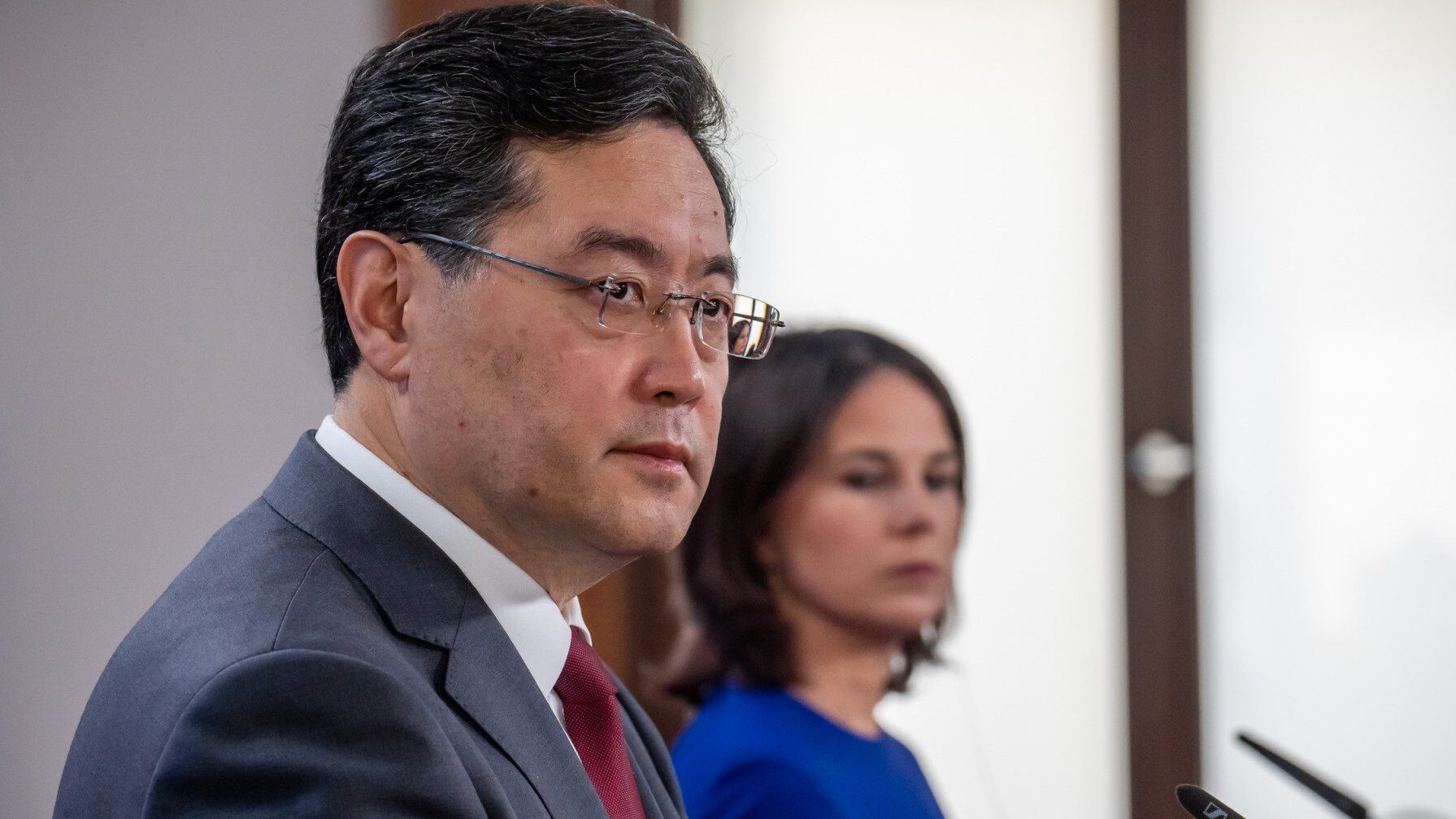
Photo: Michael Kappeler / POOL / AFP
Beijing cautioned the EU that there will be consequences if the EU goes forward with a recently proposed sanctions regime against countries who implicitly help fuel the Russian war machine. Chinese Foreign Minister Qin Gang made the warning, along with other thinly veiled threats, during a visit to Berlin on Tuesday, May 9th.
As we previously reported, the European Commission’s proposed 11th sanction package against Russia includes a few novel measures aimed at preventing sanction evasion through middlemen—such as Turkey, Iran, or China—who are accused by Brussels of helping Moscow circumvent EU sanctions by reselling its goods and providing it with banned military parts.
The proposed measure would create two annexes listing both third countries and companies to be sanctioned separately, giving the EU much-needed flexibility to tackle the issue. Albeit not as tough as similar U.S. policies, it is still an unusually bold move from the EU to confront third countries so directly.
Expectedly, Beijing is sharply critical of the EU plan. Just days after the proposal was unveiled, revealing that the Commission added eight Chinese companies to its preliminary list—including those who sell microchips for missile guidance and other dual-use items—Beijing took aim at the EU. Chinese Foreign Ministry spokesman Wang Wenbin warned on Monday, May 8th:
The EU move will erode mutual trust and cooperation with China and sharpen division and confrontation in the world, which is extremely dangerous.
We call on the EU not to take that wrong course. Otherwise, China will take resolute measures to safeguard our legitimate and lawful rights and interests.
A day later, these threats were reiterated by China’s foreign minister during a visit to his German counterpart, Annalena Baerbock, in Berlin. If the Chinese companies remain on the Commission’s sanctions list, Foreign Minister Qin warned, China will respond appropriately:
We are resolutely opposed to certain countries, certain blocs of countries, using their so-called laws to exercise long-arm jurisdiction and unilateral sanctions against other countries, including China.
If that happens, China will react in necessary ways.
Yet, German Foreign Minister Baerbock doubled down on the EU’s plans, telling Qin it is China’s obligation to make sure its companies don’t deliver military equipment or dual-use goods that help Russia’s war efforts. “We expect all countries, and China as well, to exert appropriate influence on their companies in that sense,” she said later.
Furthermore, the proposed sanctions regime was not the only problem Qin brought up to Baerbock, with regard to recent attempts by the EU to get unusually tough with China. Replying to the EU’s desired strategy of gradually detaching from the Chinese economy—also referred to as “de-risking”—Qin warned against it by spelling out its potential fallout:
If one gets rid of China in the name of de-risking, it will become de-opportunity, de-cooperation, destabilizing and de-development.
